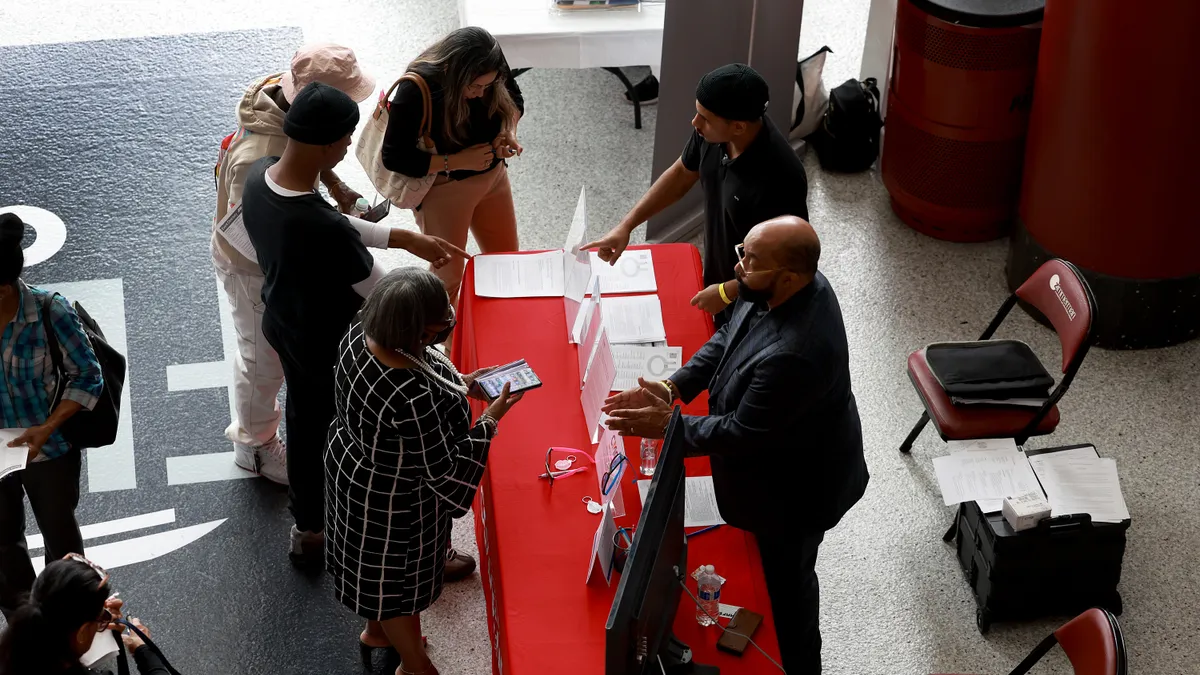Job candidates want to be asked about their skills — not hypotheticals or nonnegotiables, according to May 30 survey results from Yoh, a talent and outsourcing company.
The survey, conducted by Harris Poll, asked its more than 2,000 respondents to look at a series of questions they could be asked during an interview and choose which ones they would want to be asked.
The top three favored questions were:
- What do you think makes you a good candidate for this job?
- What soft skills (adaptability, conflict resolution, problem-solving, etc.) do you possess that would make you a good candidate for this job?
- What did you like most about your last job?
In general, candidates seemed to favor questions that had positive framing, preferring to share what they liked about their last job rather than what they disliked, for example. Respondents, especially those of a minority background, also wanted to share how they dealt with difficult situations, Yoh said; more than half of Hispanic respondents wanted to be asked “How do you handle high-stress situations at work?” compared to 41% of White, non-Hispanic respondents.
Candidates also said they were keen to talk about their accomplishments and why they were proud of them.
But candidates seemed to shy away from questions that asked about individual needs, such as questions about nonnegotiables or desired resources. Hypothetical questions — such as one asking what career a candidate would choose if money was no object — also ranked low.
“The key for hiring managers is to strike the right balance between relying on conventional, tried-and-true questions and pushing the boundaries of the traditional interview with out-of-the-box questions that test applicants’ creativity and problem-solving ability,” Emmett McGrath, president of Yoh, said in a statement.
Talent pros may have good reason to revisit interview questions, especially with hiring managers. Nearly half of employees surveyed in 2022 by Greenhouse, a hiring software company, said they rejected a job offer after a bad interview experience. Almost 40% of Black respondents said they faced discriminatory questions, compared to 31% of White respondents. Women were also more likely to say they faced discriminatory questions compared to men.













